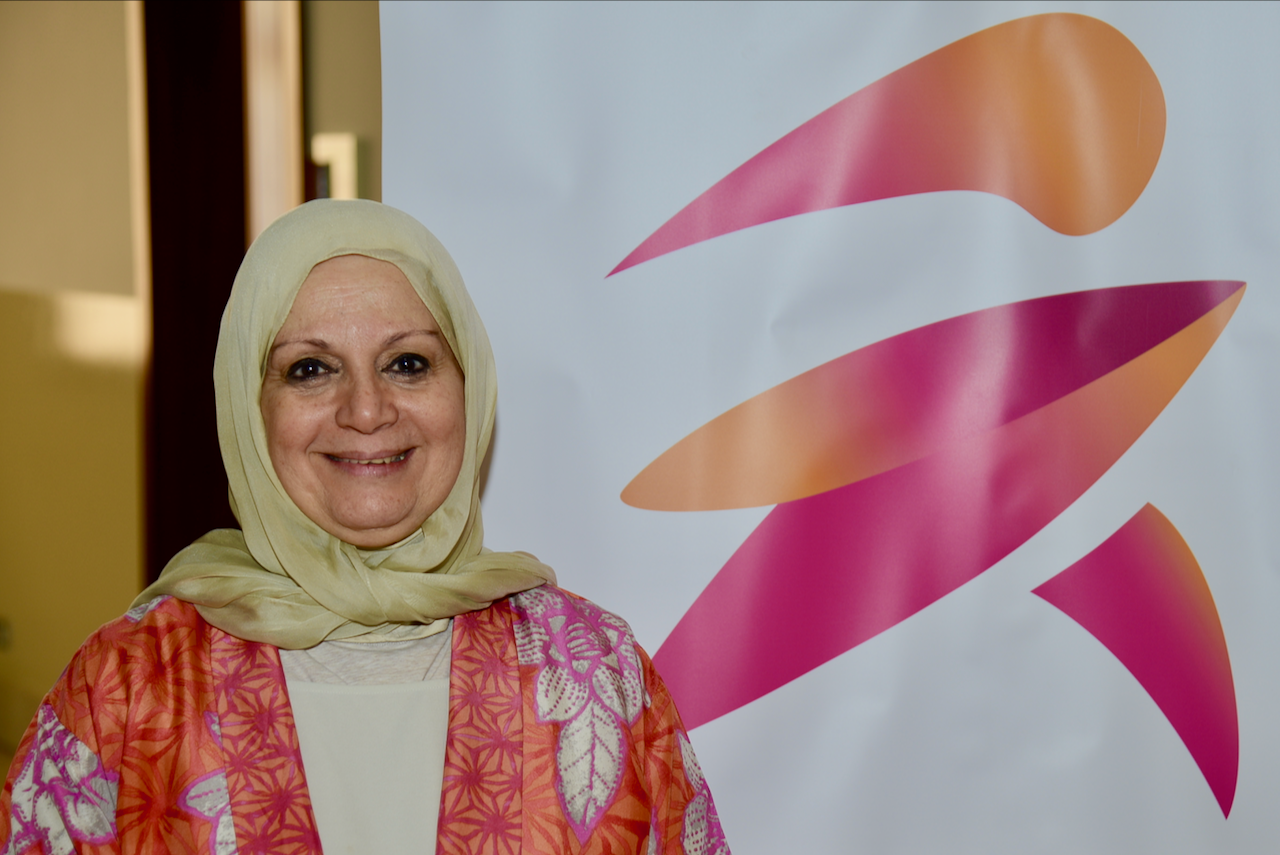Take five: Working to achieve SDG 5 in Kuwait
Date:

Dr. Lubna AlKazi graduated from the University of Texas with a Ph.D. in Demography and Sociology. She is an Associate Professor at Kuwait University in the Sociology Department. As the founder and director of the Women’s Research and Studies Center (WRSC), she is working with the General Secretariat of the Supreme Council for Planning and Development (GSSCPD), UN Women and UNDP to support Kuwait to accelerate the implementation of Sustainable Development Goal 5 (SDG5): Achieve gender equality and empower all women and girls. Dr. AlKazi spoke to UN Women about her work.
- How is the current situation for women and girls in Kuwait?
Women in Kuwait are making great strides in education, especially in science, technology, engineering and mathematics (STEM) and there is a steady stream of women to non-“stereotypical” jobs. Furthermore, the number of women employed in the private sector is increasing. But overall, not enough women are reaching leadership positions. The percentage of Kuwaiti women with university degrees is double that of men and yet the leadership representation is less than 15% in the Government sector and less than 20% in the private sector. Women make up 70% of students in STEM and also outnumber men in in the labour force in fields such as medicine, medical technology, law and teaching. As part of the national plan to diversify the Kuwaiti economy, there has been a steady flow of Kuwaitis to the private sector. In fact, the pace of women entering this sector has been faster than men: 15 years ago, women made up only 5% of the private sector and now they have more than tripled in number. Banking and the oil sector saw the largest increase in the entry of new recruits. There is also a rising trend of women embarking on small enterprises of their own.
- HH Sheikh Sabah Al-Ahmad Al-Jaber Al-Sabah, Amir of the State of Kuwait, committed Kuwait to the implementation of the Agenda 2030 for Sustainable Development in September 2015. How is the country working to achieve the SDGs?
The Kuwait National Development Plan (KNDP) has a component and budget for gender development, with a focus on SDG5 on gender equality and women’s empowerment. These funds are invested in providing women with the necessary skills to join the labour force and to train them in leadership. At the Kuwait University WRSC, we also working on research to inform white paper policies on health and addressing violence against women.
- Kuwait has prioritized SDG 5 on gender equality and women’s empowerment in its development work. How is gender equality and women’s empowerment linked to the KNDP?
HH the Amir’s State Vision Kuwait 2035 is fully supportive of gender equality and women’s empowerment. Therefore, the KNDP works towards increasing women in leadership positions and identifying indicators to measure progress in the implementation of gender equality. This contributes to the coordinated efforts of the government, civil society, the private sector and other academic institutions to implement Agenda 2030 in Kuwait.
- What is the role of the WRSC in this programme?
The WRSC was established within Kuwait University to implement the gender component of the national development plan in 2010. Under the current programme, and with the technical support of UN Women Regional Office for the Arab States and UNDP Kuwait, we’re working to achieve SDG 5 in Kuwait by supporting women’s political participation through leadership training, women’s economic empowerment and the involvement of major Companies in implementing and committing to WEP on the UN Global Compact and ending violence against women. The WRSC draws on its academic expertise and linkages with other institutions in the region to inform this work in support of Kuwait’s national commitment to Agenda 2030. The role of the center is to enable both the public and private sector to be important partners in realizing SDG 5.
- What specific actions are being taken to increase women’s political participation and women’s economic empowerment in the country?
As part of this joint work, 60 Kuwaiti women joined a training on leadership earlier this year to enhance their skills to stand for elections and attain leadership positions within their organizations. Also this year, Kuwait took part in the global “Ring the Bell for Gender Equality” initiative that took place on International Women’s Day at the Kuwait Stock Exchange. In March, the centre organized a training on gender-responsive budgeting for government agencies to support national planning to empower women, in line with the goals of the Kuwait National Development Plan. The WRSC also worked with UN Women and the NGO Promundo to conduct a survey of 2,000 households with the aim of measuring the incidence of violence against women in Kuwait. This was the first time that the International Men and Gender Equality Survey (IMAGES) was conducted in the Gulf sub-region. There is already a strategy on the protection of children from violence and we aim to develop a national strategy on violence against women. Later this year, we will work with representatives of the private sector to promote the adoption of the Women’s Empowerment Principles, a set of principles for business offering guidance on how to empower women in the workplace, marketplace and community. WRSC will also conduct an advanced training for Kuwaiti women who wish to stand for elections, including connection to the Ra’edat network where past former and current women MPs from across the Arab States region interact.